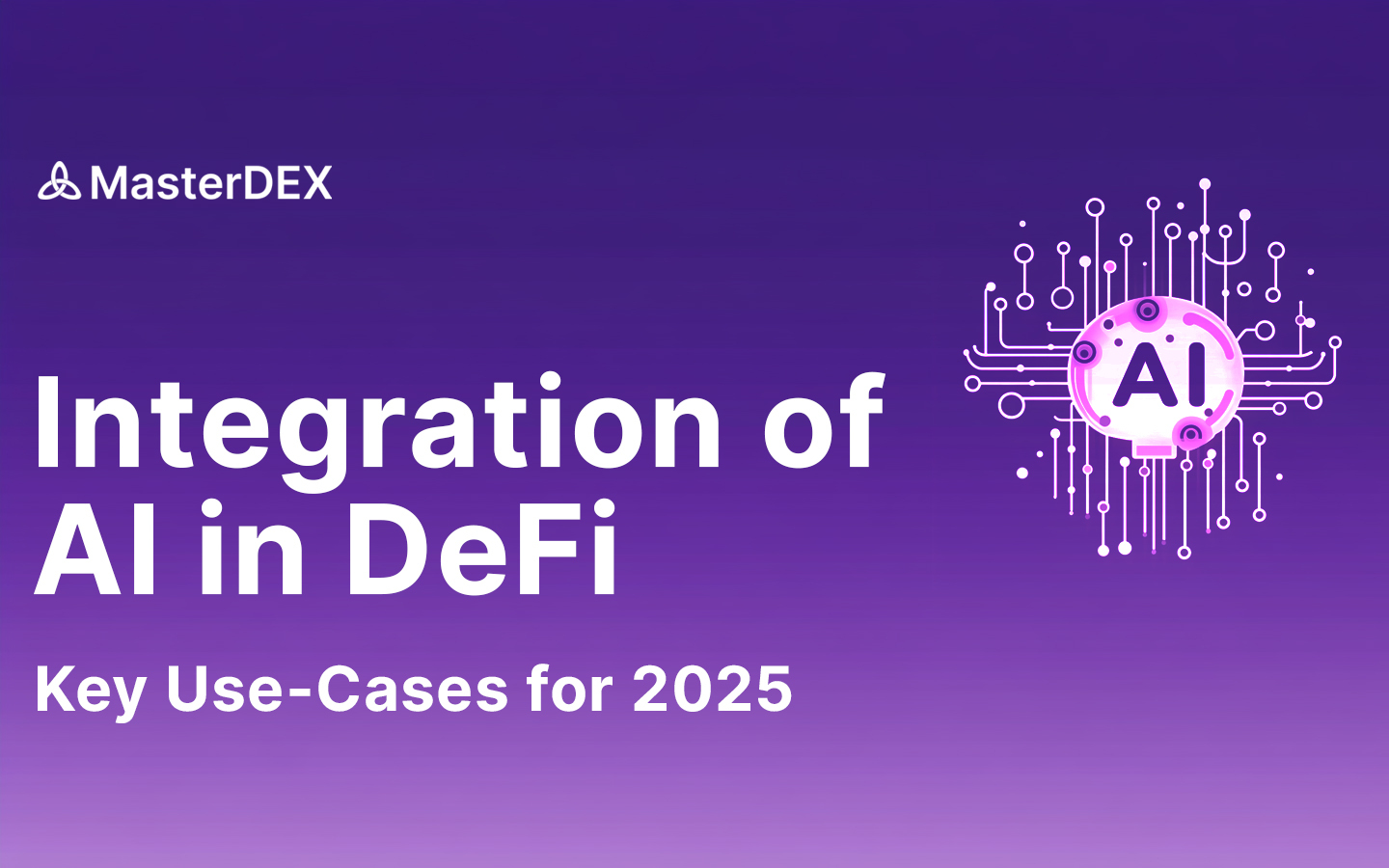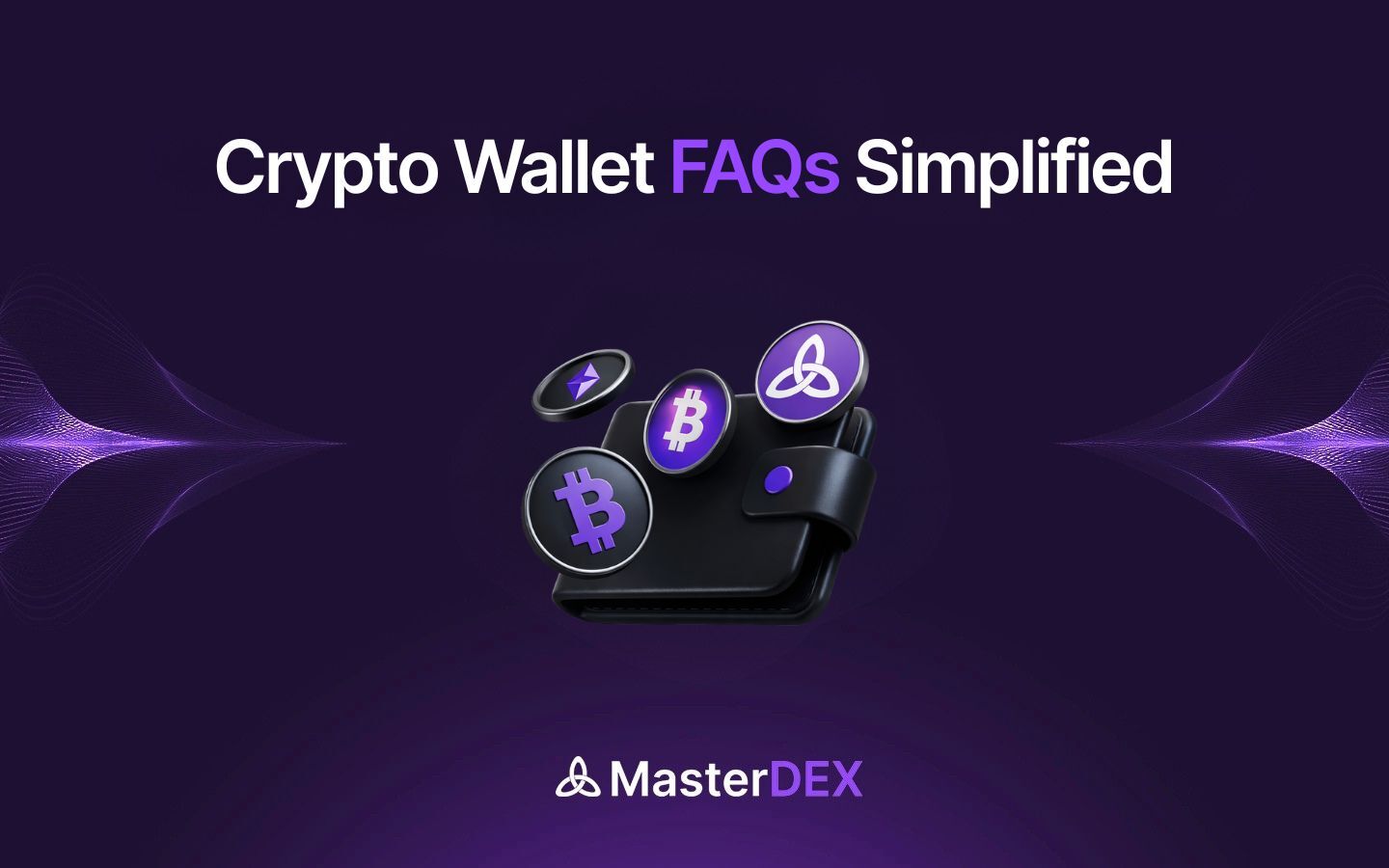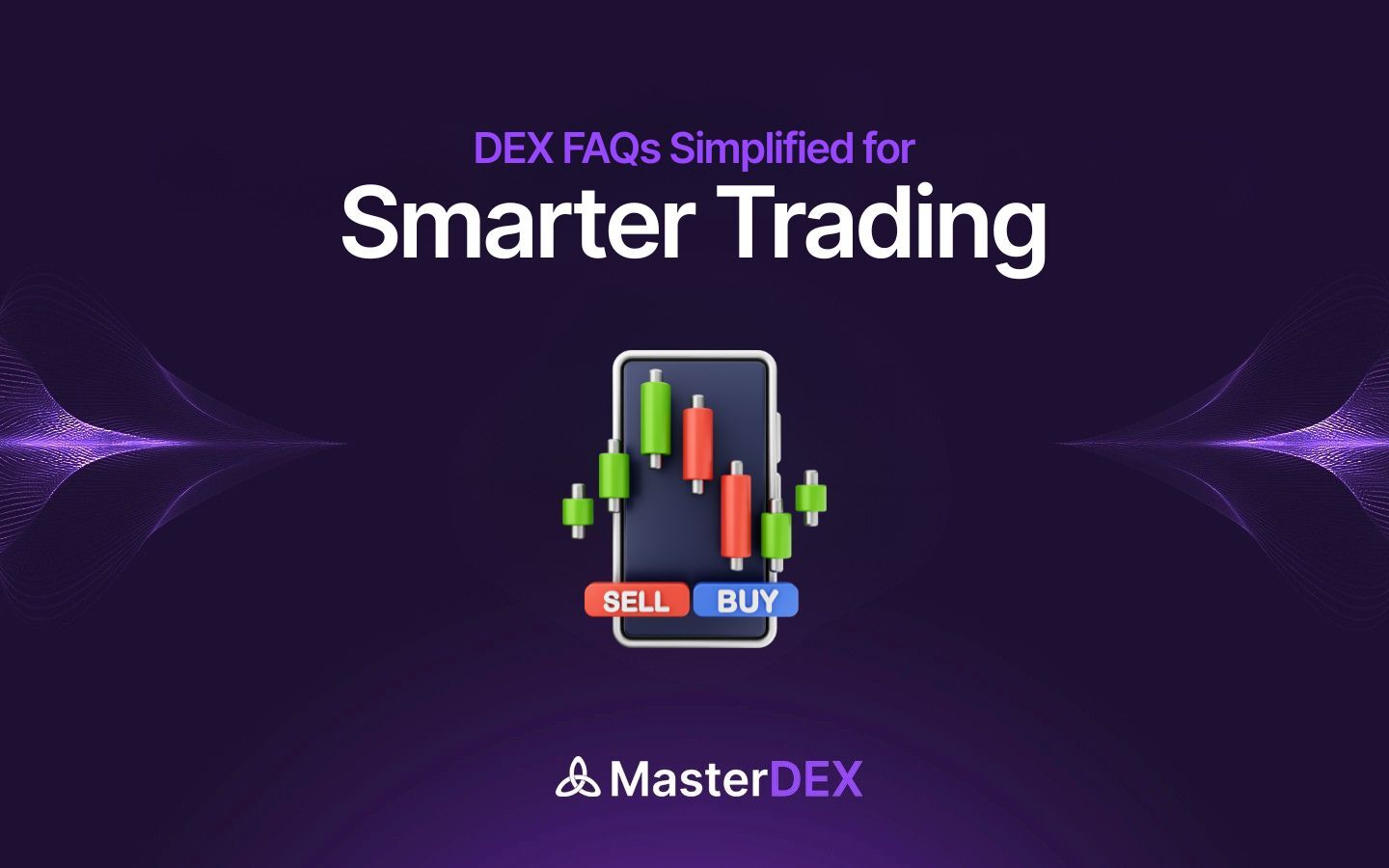Table of Contents:
ToggleAI in DeFi: An Overview
Artificial intelligence (AI) is rapidly transforming the decentralized finance (DeFi) landscape, enhancing how financial services are delivered. DeFi, which relies on blockchain technology for peer-to-peer transactions without intermediaries, is leveraging AI to boost security, automate operations, and enable advanced data analytics. According to GrandViewResearch, the global decentralized finance market was valued at USD 20.48 billion in 2024 and is expected to grow at a CAGR of 53.7% from 2025 to 2030. This growth is driven by DeFi’s increasing popularity as a revolutionary force in finance.
As DeFi and AI continue to evolve, they jointly enhance financial services by making them more secure, efficient, and accessible to a global audience. This article explores the primary use cases of AI in decentralized finance, the challenges of this integration, and the future prospects.
Key Use-Cases of AI in DeFi
Integrating AI into DeFi platforms is paving the way for intelligent, efficient, and customized financial services. AI enhances various aspects of decentralized finance, including price discovery, risk management, liquidity optimization, and user experience. DeFi provides a decentralized and transparent environment for deploying AI models, addressing data privacy, bias, and centralization commonly found in traditional AI systems. Here are the most significant use cases of AI in decentralized finance for 2025 and beyond:
AI-Enhanced Automated Market Makers (AMMs)
AI is revolutionizing the efficiency of Automated Market Makers (AMMs), which form the foundation of decentralized exchanges (DEXs). By leveraging deep learning and reinforcement learning, AI can analyze market dynamics, user behaviour, and liquidity trends to optimize pricing models, reducing slippage and enhancing trading efficiency.
AI-driven AMMs dynamically adjust liquidity pool parameters and incentives, ensuring efficient capital allocation and a better trading experience for users.
AI-Driven Lending and Credit Scoring
AI is transforming lending platforms in DeFi by enabling accurate and inclusive credit scoring. Machine learning algorithms analyze both on-chain and off-chain data, including transaction history, asset ownership, and digital footprints, to evaluate creditworthiness.
This advanced assessment allows lending protocols to offer tailored interest rates and collateral requirements, expanding credit accessibility to underserved communities.
Intelligent Yield Farming Strategies
Yield farming, a popular decentralized finance strategy, is becoming more efficient through AI optimization. AI algorithms assess market trends, token price movements, and protocol risks to identify profitable yield farming opportunities.
AI-powered yield aggregators automatically rebalance portfolios and adapt staking strategies to maximize returns while minimizing risks. Reinforcement learning helps develop adaptive yield farming models that learn from changing market dynamics.
AI-Powered Portfolio Management
AI enhances portfolio management in DeFi by delivering personalized investment advice and automation. Machine learning evaluates user preferences, risk tolerance, and market sentiment to suggest optimal asset allocation and rebalancing strategies.
AI-driven robo-advisors integrated into decentralized finance platforms provide data-driven investment guidance and execution, making portfolio management more efficient and cost-effective.
Decentralized AI (DeAI) in decentralized finance
Decentralized AI (DeAI) involves training and deploying AI models on decentralized networks, ensuring transparency and security. DeAI allows the creation of tamper-proof AI models for various DeFi applications, such as price prediction, risk analysis, and fraud detection.
It also enables seamless data and model sharing among DeFi protocols, fostering collaboration and innovation across the decentralized ecosystem.
Challenges of Integrating AI in DeFi
Despite the potential benefits, integrating AI into DeFi faces several challenges, including:
- Technical Complexity: Merging AI algorithms with blockchain infrastructure is complex due to blockchain technology’s decentralized and immutable nature.
- Scalability Concerns:AI computations and blockchain transactions are resource intensive. Combining them may lead to scalability challenges, increased transaction costs, and slower processing times.
- Lack of Transparency: AI models, especially deep learning systems, often function as “black boxes,” making it difficult to understand decision-making processes. This lack of transparency could undermine user trust in DeFi platforms.
- Security Vulnerabilities: AI systems are susceptible to cyberattacks, where malicious actors may manipulate algorithms for fraudulent gains. Ensuring the security of AI models is essential to safeguard DeFi protocols.
- Regulatory Challenges: Both AI and decentralized finance are emerging fields, making it challenging to navigate evolving regulatory frameworks. Compliance with data privacy laws, like the General Data Protection Regulation (GDPR), remains a significant hurdle.
The Future of AI and Decentralized Finance Integration
Integrating AI in DeFi unlocks new possibilities and enhances trading efficiency, risk management, and user experience. As these technologies evolve, platforms like MasterDEX are setting new standards by combining AI-driven insights with decentralized finance.
MasterDEX empowers users with cutting-edge tools for exploring, analyzing, and trading crypto assets, all while maintaining full control and security.
With AI, community-driven innovation, and Web3 functionalities, MasterDEX is redefining DeFi, paving the way for a more efficient and inclusive financial ecosystem.
Trade smarter, trade decentralized with MasterDEX.



